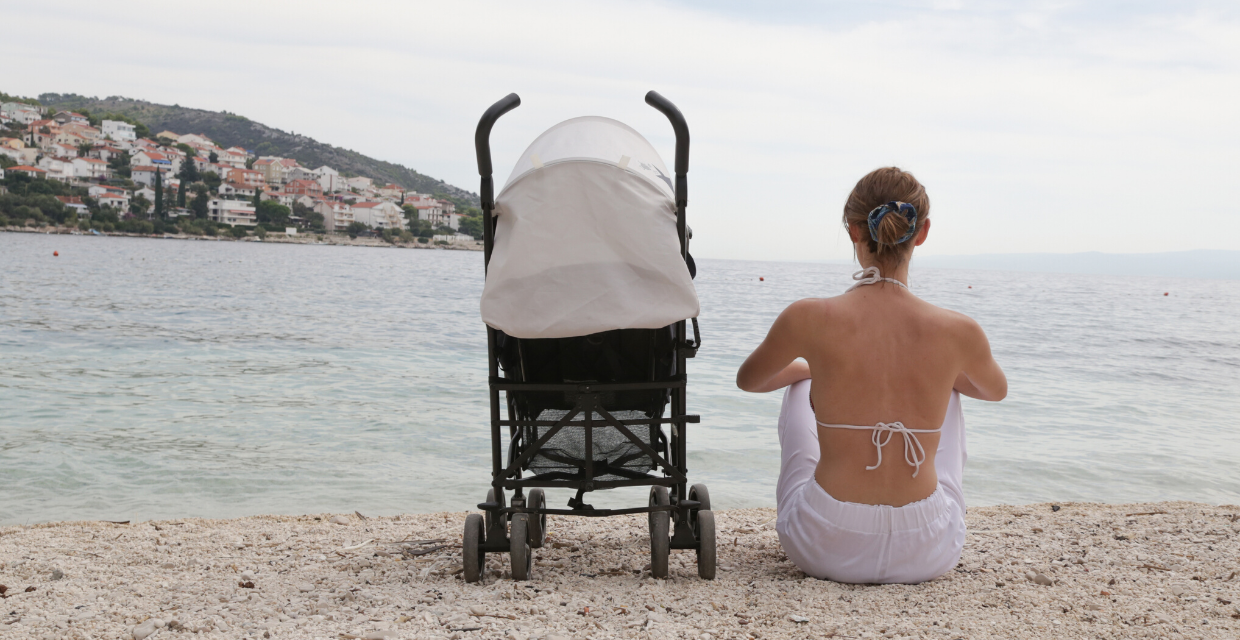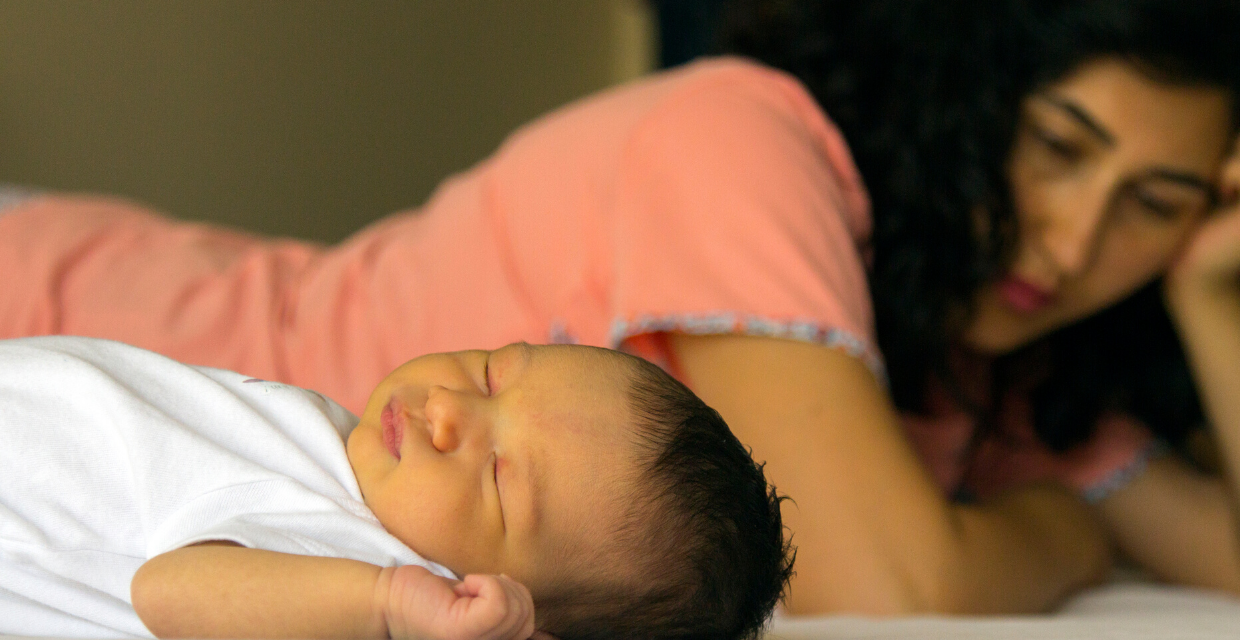Everyone will prepare you for childbirth, but no one prepares you for the postpartum period.
Your baby will be your priority. But, as a mother, you have to know that your well-being is just as important. The body changes, the fluctuating hormonal levels, and the wounds you have to heal from giving birth need postpartum care.
Here’s what you need to know about the postpartum period:
- What is postpartum care?
- Why is postpartum care important?
- The 4 Golden Advices of Postpartum Care
What Is Postpartum Care?
Postpartum care is the healthcare attention the mother receives during the recovery period. Not to be mistaken for postnatal care, postpartum care is exclusively given to the mother.
Why Is Postpartum Care Important?
Postpartum care helps the recovering mother from childbirth and the changes that she will be facing. The check-ups for the mother following childbirth is essential to the mother’s wound recovery and overall mental well-being.
Postpartum, the mother will go through physical and emotional changes. If not given attention to, some of these changes can lead to health complications like wound infections and haemorrhage, postpartum psychiatric disorders and high blood pressure.
Remember that postpartum care is just as important as prenatal care.
Read more: Prenatal Care: What Should I Do Now That I Am An Expecting Mum?
The 4 Golden Advices Of Postpartum Care

1. Never Miss Your Doctor’s Appointments
Scheduled visits to the obstetrician-gynaecologist are important. You will not go through any tests unless necessary, but your doctor will give you thorough examinations on your healing wounds, overall health and counselling.
To make sure you’re up to date with everything, keeping an organiser and planner can work wonders as a new mum. You can take note of your doctor’s instructions, medications, appointments and other important information needed while you ease into motherhood.
Add header like “Postpartum Dates/Milestones To Take Note Of”
-
1 Day Postpartum:
Postpartum care starts the moment you give birth to your baby.
The best part of the first 24 hours of being a mother will be your first touch with your baby. As soon as your baby is delivered, your baby will be handed to you.
The assistants in the birthing room will teach you how to hold your baby, while the baby familiarises your voice, scent and warmth. This will be done for the first several minutes of the baby’s life.
-
3 Weeks Postpartum:
To properly address your recovery, your doctor will let you undergo a physical examination.
If you had a tearing during childbirth, your doctor will check if the wound is healing as it should during the pelvic examination. You will also have your weight, blood pressure, breasts and tummy checked for any abnormalities.
If you have any complications during pregnancy that might affect your health after giving birth, your doctor will also address these concerns and prescribe you with instructions accordingly.
Once everything is checked, your doctor will check if your vaccinations are updated to make sure no complications will occur during your recovery.
Note: Your prenatal obstetrician-gynaecologist can also be your postpartum doctor.
-
12 Weeks Postpartum
Expect a comprehensive postpartum evaluation. To make sure you’re healing well, the doctor will examine your abdomen, vagina, cervix and uterus.
You will also undergo an evaluation of your mental and emotional well-being. How you’re coping with motherhood, your breastfeeding experience and birth spacing are important concerns that your doctor will disclose with you.
This is the best time to discuss your concerns with your doctor. Ask for advice on infant care and contraception.
2. Proper Nutrition Is The Key To Recovery
Did you know, it takes almost 18 months for a mother to regain all the nutrients and strength she lost giving birth? You lost a lot of weight and blood during childbirth and your hormonal levels are unstable for the entire postpartum period. For your well-being, following a healthy diet is essential postpartum. Here is some food to add to your plate:
- Avocado
- Broccoli
- Leafy green vegetables
- Carrots
- Pineapples
- Whole grain products
Even after giving birth, you will have a recovering body, constipation and wild hormones. Your diet during pregnancy will help reduce the risks of postpartum concerns and complications.
3. Help Your Body Heal
Postpartum care involves your effort in helping your body recuperate. You will be prescribed with medication that will help the body recover and deal with the pain of childbirth, but you need to help your body heal, too.
Read more: An Ultimate Guide On Recovery After Delivery
Using warm compresses and taking herbal and organic baths will help the wound heal faster. This method is not harmful to your baby’s health during breastfeeding.
If you are facing concerns with your confidence as a woman and a mother, do what you think will help you solve the problem of dealing with the exhaustion and frustrations of recovery after delivery. Some positive things you can focus on are:
- Spending more time with your baby.
- Doing shopping with your family.
- Investing in non-toxic skincare products.
- Eating healthy to feel healthy.
4. Be Aware of Postpartum Psychiatric Disorders

Postpartum psychiatric disorders are common concerns among mothers following childbirth. Due to the extreme drop in hormonal levels, a new mother experiences mood swings and emotional disturbance.
There are three categories to the psychiatric illness, arranged from the mild to severe symptoms;
Postpartum Blues
Postpartum blues are considered normal feelings and thoughts that follow a mother after delivering the baby. Some do not consider this a psychiatric illness because it doesn’t stop the mother from doing her role in the baby’s life and is usually short-lived, following a week or two after giving birth. The signs of postpartum blues are;
- an overwhelming rush of emotions leading to crying,
- irritable behaviour
- anxiety
Postpartum Depression
Postpartum depression occurs anywhere between two to three weeks post-delivery to any time later. It holds similarity with depression which needs to be addressed as soon as signs in the mother are noticed;
- sad or depressed behaviour
- loss of appetite to eat
- loss of interest in activities
- sleep deprivation
- crying regularly
- chaotic behaviour
- suicidal thoughts and words
Postpartum Psychosis
Considered the most severe of postpartum psychiatric disorders, it is a rare case for women to go through – but, not impossible.
Postpartum psychosis is a treatable mental illness following the period after a mother gives birth to anytime within the recovery period. Most of the mothers that are diagnosed with this have a history of bipolar and obsessive-compulsive behaviours. The early signs of postpartum psychosis are;
- delusional behaviour
- paranoia
- manic episodes
- Severe insomnia
- severe loss of appetite
- bipolar behaviour
- constant disorientation and confusion
In A Nutshell…
Postpartum care is a necessity for all mothers, just as much as postnatal care for babies is.
Your child and the family’s entire well-being will be your main concern in everything you do. With postpartum care, you can make sure you are doing better.
As a mother, what’s the best postpartum care advice you’ve received?







